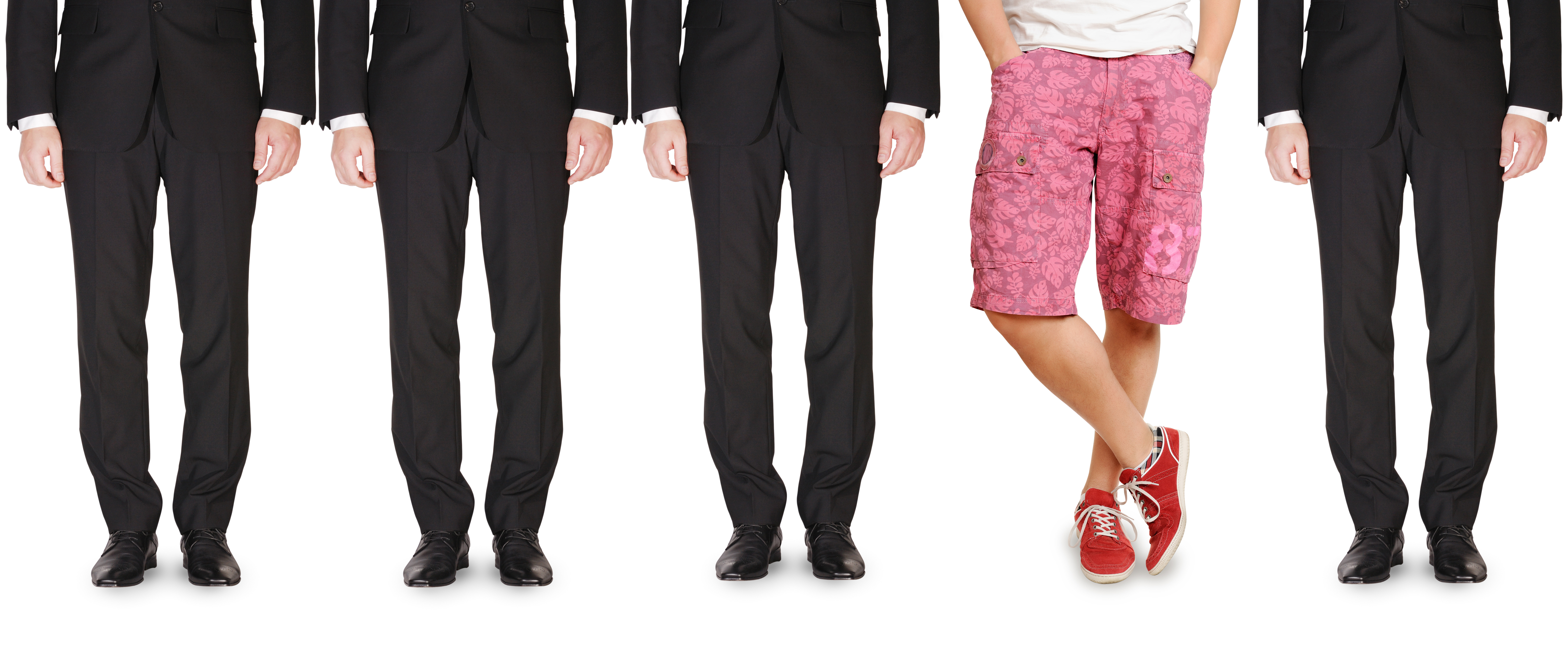September has arrived, the days are getting shorter and it will be autumn soon. Most of us have returned from our holidays, but the days are still hot and some employees are reluctant to change back into formal office attire.
Many workers ask: can I go to work in shorts? The employer’s reply will depend on several factors. It manly depends on the Company’s line of business, the job position, the existing practice, the applicable collective labor agreement and company policy.
Last June a story about a call center worker in the UK who was sent home from work for wearing shorts in the middle of a heat wave went viral. But rather than changing into long trousers, he decided to wear a dress (arguing that women were allowed to) and the company once again asked him to dress appropriately. However, the incident made the company change the dress code, from then on allowing male employees to wear three-quarter length shorts, in black, beige and navy.
Spanish legislation does not expressly regulate how employees should dress for work. However, depending on the company’s activities or the employee’s job position, certain rules regarding individual items or equipment that the employee should use for safety purposes (safety boots for example) or for reasons of hygiene for example (hats in the kitchen, etc.) are applicable. Furthermore, some collective labor agreements include more or less detailed rules regarding employees’ clothing or external appearance, which may also be regulated by the company through a dress code.
But are there limits that dress codes cannot cross? Although there is not a great deal of legal theory on the subject in Spain, there does appear to be consensus regarding the fact that employers may establish dress codes pursuant to the principle of freedom of enterprise (article 38 of the Spanish Constitution) and article 20.1 of the Workers’ Statute, according to which employees are obliged to perform their work under the instructions of the employer.
However, when it comes to establishing these dress codes, there are various constitutional rights of the employees which must be respected and which would appear to support their right to adopt whatever external appearance they wish: the right to personal and family privacy and one’s own image (article 18.1); to dignity and the unhindered development of human personality (article 10.1); to equality and nondiscrimination on the grounds of sex or religion (article 14.1); and to freedom of ideology, conscience or religion (article 16.1).
Consequently, the limits that employers are able to lay down in their dress codes must be proportional to the desired purpose. That is, an employer may impose a certain way of dressing (through the use of uniforms), or prohibit certain clothing, provided that these limits are proportional and that the measure is suitable, necessary, balanced or reasonable.
In short, in reply to the query raised in this post, it can be said that an employer may prohibit its employees from wearing shorts when the employee deals face to face with customers and this style of dress is not customary in the profession. However, the specific circumstances involved and applicable legislation should be analyzed in detail in each case.
Garrigues Labor and Employment Law Department






